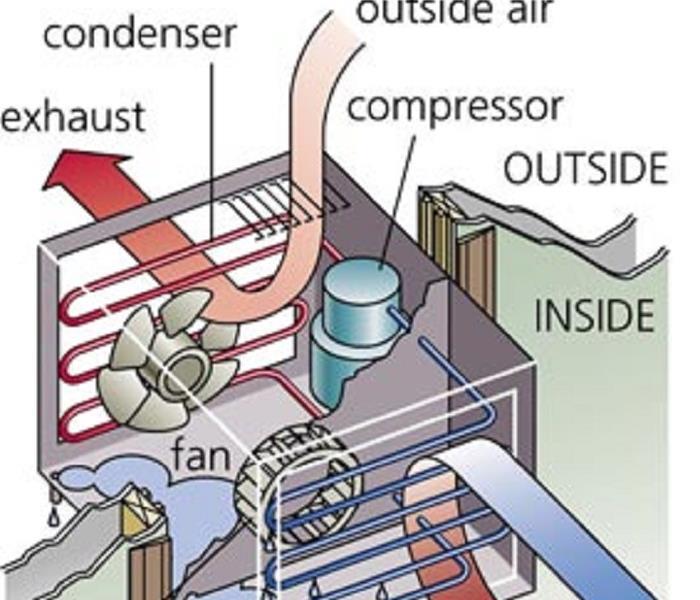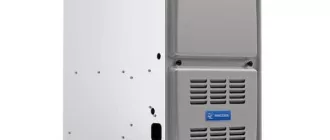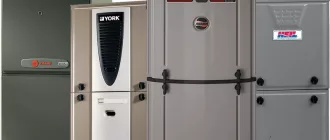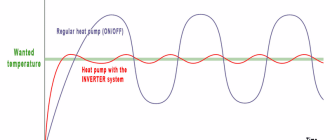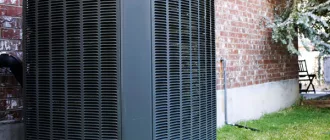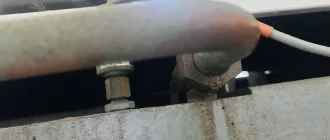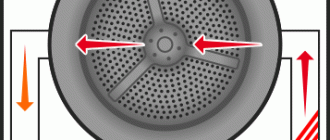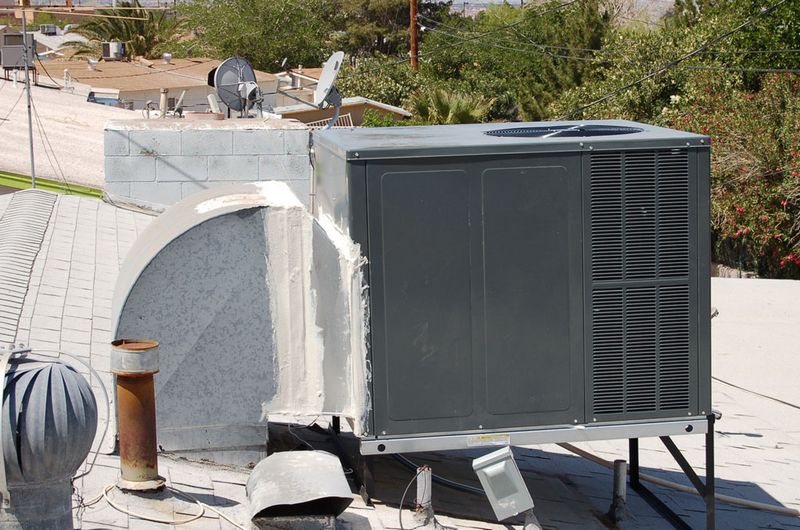
How Do Extremely Hot Days Affect My Home’s Air Conditioner?
During extremely hot days, your home’s air conditioner has a lot of work to do to keep your living spaces cool and comfortable. However, prolonged exposure to high temperatures can affect the efficiency and performance of your air conditioner, leading to potential problems and even breakdowns.
When the weather is scorching hot, your air conditioner has to work harder and longer to cool your home. This increased workload can put a strain on the system, causing it to consume more energy and potentially leading to higher utility bills. Additionally, the air conditioner’s components, such as the compressor and condenser, may be working at their maximum capacity, which can shorten their lifespan.
Extreme heat can also affect the cooling ability of your air conditioner. When the outside air temperature is too high, the heat exchange process becomes less effective, making it harder for the system to cool your home. As a result, you may notice that your air conditioner is not able to reach your desired indoor temperature, leading to discomfort and frustration.
It’s important to take proactive steps to protect your air conditioner during extremely hot weather. This can involve tasks such as keeping the filters clean, ensuring proper insulation in your home, and scheduling regular maintenance checks with a professional technician. By taking these precautions, you can help your air conditioner perform efficiently and effectively, even on the hottest of days.
“Remember that your air conditioner is a valuable investment for your home, and taking care of it during hot weather is essential for its long-term performance and longevity.”
In conclusion, extremely hot weather can have a significant impact on your home’s air conditioner. From increased energy consumption to reduced cooling ability, the effects of high temperatures can affect both the performance and lifespan of your system. By taking the necessary precautions and regularly maintaining your air conditioner, you can ensure that it continues to keep your home cool and comfortable, even during the hottest of days.
The Role of Weather in Air Conditioner Performance
Extremely hot weather can significantly affect the performance of your home’s air conditioner. When the temperature rises to extreme levels, the air conditioner has to work harder and for longer periods of time to maintain a comfortable indoor temperature. This increased workload can put a strain on the air conditioner and lead to various issues.
During extremely hot days, the air conditioner has to cool the hot air from outside and circulate it throughout your home. The hotter the air is, the more energy and time it takes for the air conditioner to cool it down. As a result, your air conditioner may have to run continuously to keep up with the demand, leading to higher energy consumption and potentially higher utility bills.
Moreover, the constant operation of the air conditioner during extremely hot days can put a strain on its components, such as the compressor and the fan. These components are essential for the proper functioning of the air conditioner, and prolonged usage under extreme conditions can cause them to wear out faster or even fail altogether.
In addition to the strain on the air conditioner’s components, extreme heat can also affect the air conditioning system’s refrigerant. When the outside temperature is extremely hot, the refrigerant in the system can become overworked and overpressurized, which can lead to leaks and a decrease in overall cooling efficiency.
To mitigate the effects of extremely hot weather on your air conditioner, it is important to provide proper maintenance and care. Regularly clean or replace air filters and ensure that the system is free of debris. Additionally, scheduling regular professional inspections and tune-ups can help identify and address any potential issues before they become major problems.
Overall, understanding how extremely hot weather affects your home’s air conditioner is crucial in maintaining its performance and preventing costly repairs. By taking proactive measures and staying vigilant, you can ensure that your air conditioner functions efficiently and effectively, even during the hottest days of the year.
Understanding the Effects of High Temperatures on Your AC Unit
Hot summer days can put a lot of strain on your home’s air conditioner. Understanding how these high temperatures affect your AC unit is essential for maintaining its performance and prolonging its lifespan.
Firstly, it’s important to know that air conditioners work by removing heat from your home and expelling it outside. When the outside temperature is hot, your AC unit has to work harder to cool down the indoor air. This increased workload puts a significant amount of stress on the system, making it more prone to breakdowns and malfunctions.
In addition to the added workload, high temperatures can also affect the efficiency of your air conditioner. The hotter it gets outside, the more difficult it is for your AC unit to transfer heat from your home to the outdoors. This means that it may take longer for your home to reach the desired temperature, causing your AC unit to run for longer periods of time.
Another effect of high temperatures on your AC unit is an increased risk of refrigerant leaks. The refrigerant is responsible for absorbing and releasing heat during the cooling process. However, in extreme heat, the pressure inside the AC unit can build up, leading to leaks in the system. Low refrigerant levels can make your air conditioner less effective at cooling your home and can even cause damage to the compressor.
To mitigate the effects of high temperatures on your AC unit, there are a few things you can do. First, make sure your air conditioner is properly maintained and serviced regularly. This includes cleaning or replacing the air filters, inspecting the condenser coils, and checking the refrigerant levels. Additionally, consider installing shades or curtains on windows that receive direct sunlight to reduce the heat load on your home.
In conclusion, understanding how high temperatures affect your air conditioner is crucial for maintaining its performance and preventing costly repairs. By being aware of the increased workload, reduced efficiency, and potential refrigerant leaks, you can take the necessary steps to protect your AC unit and keep your home cool during hot summer days.
How Heatwaves Can Overwork Your Air Conditioner
In hot weather, air conditioners work harder to cool your home. When temperatures soar during heatwaves, your air conditioner can become overworked and struggle to maintain a comfortable temperature.
The excessive heat can cause the air conditioning unit to run continuously for days on end, leading to increased wear and tear on the system. This can result in a higher risk of mechanical failure and reduced efficiency, leading to higher energy bills.
The hot weather also puts extra strain on the air conditioner’s compressor, which can lead to overheating. When the compressor is overworked, it may struggle to cool the air effectively, resulting in reduced cooling capacity.
During heatwaves, the demand for air conditioning is high, which can put a strain on the power grid. This increased demand can lead to power outages or brownouts, further impacting the performance of your air conditioner.
To prevent your air conditioner from being overworked during heatwaves, it is important to take proactive measures. This includes regular maintenance, such as cleaning or replacing air filters, checking the refrigerant levels, and inspecting the unit for any signs of wear and tear. Additionally, using ceiling fans or window coverings can help reduce the load on your air conditioner.
- Regularly clean or replace air filters to improve airflow
- Check refrigerant levels and top up if necessary
- Inspect the unit for any signs of wear and tear
- Use ceiling fans or window coverings to reduce the load on the air conditioner
By taking these steps, you can help ensure that your air conditioner remains efficient and reliable even during the hottest days of the year.
Why Extreme Heat Puts Pressure on Your Air Conditioning System
Extreme heat can have a significant impact on your home’s air conditioning system, causing it to work harder and potentially leading to issues and malfunctions.
During the hottest days of the year, your air conditioner has to cool the incoming hot air from outside to maintain a comfortable temperature indoors. The hotter the air outside, the more work your air conditioner has to do to lower the temperature inside your home.
This constant work puts a lot of strain on your air conditioning system. The components have to run for longer periods, and the compressor in particular has to work harder to cool down the air. This increased workload can lead to wear and tear on the system and potentially result in breakdowns or the need for repairs.
Extreme heat can also affect the efficiency of your air conditioner. When the outside temperature is excessively hot, it becomes more difficult for the air conditioner to transfer heat out of your home. This can lead to longer cooling cycles and increased energy consumption, resulting in higher electricity bills.
In addition, extreme heat can cause the air conditioning system to struggle to reach the desired temperature. The demand for cooling is high during hot days, and if your air conditioner is not properly sized or maintained, it may not be able to keep up with the cooling demands. This can result in uncomfortable indoor temperatures and decreased comfort.
To mitigate the effects of extreme heat on your air conditioning system, it is important to have regular maintenance and inspections. A professional technician can identify any potential issues and ensure that your system is running efficiently. Additionally, taking steps to improve your home’s insulation and reduce heat gain can also help alleviate the strain on your air conditioner.
In conclusion, extreme heat can significantly affect your home’s air conditioning system. Understanding how hot temperatures can impact your air conditioner and taking necessary precautions can help extend the life of your system and ensure optimal performance.
The Impact of Hot Weather on AC Efficiency and Performance
Hot weather can greatly affect the efficiency and performance of your home’s air conditioner. When the temperature rises to extremely high levels, your AC unit has to work harder to cool the air inside your home.
This increased workload can lead to several issues. Firstly, it can cause your air conditioner to consume more energy, which can result in higher utility bills. Additionally, the strain on the unit can cause it to wear out faster, leading to a shorter lifespan.
Moreover, extremely hot days can also put your AC unit at risk of breaking down. The constant usage and the high demands placed on the system can cause components to overheat or fail, resulting in the need for repairs or even a complete replacement.
To mitigate the impact of hot weather on your AC’s efficiency and performance, there are a few steps you can take. Firstly, ensure that your air conditioner is properly maintained. Regularly clean or replace the air filters, as dirty filters can impede airflow and reduce efficiency. Additionally, schedule annual maintenance visits with a professional to inspect and tune-up your system.
Furthermore, you can also take proactive measures to reduce the amount of hot air entering your home. Use curtains or blinds to block out direct sunlight, and seal any gaps or cracks around windows and doors to prevent warm air from infiltrating your living space.
In conclusion, the impact of hot weather on your home’s air conditioner can be significant. By being aware of how hot days can affect your AC’s efficiency and performance, and by taking proactive steps to maintain and protect your system, you can ensure that it continues to keep your home cool and comfortable even during the hottest summer days.
How Your Air Conditioner Copes with Excessive Heat
Extremely hot days can greatly affect the performance of your home’s air conditioner. When temperatures rise, your air conditioner has to work harder to cool the air in your home, leading to increased energy consumption and potentially higher utility bills.
So, how does your air conditioner cope with these extreme conditions? Firstly, it adjusts its settings to try and maintain a comfortable indoor temperature. It may run for longer cycles or at higher speeds to keep up with the demand for cool air. However, this can put additional strain on the system and potentially lead to wear and tear over time.
In addition to adjusting its settings, your air conditioner may also rely on certain components to keep your home cool. The compressor, for example, plays a crucial role in transferring heat from inside your home to the outside. In extreme heat, the compressor may have to work harder and for longer periods, which can put it at risk of overheating or even completely failing.
To prevent these issues, it’s important to properly maintain your air conditioner and ensure it is in good working condition. Regularly cleaning or replacing the air filters can help improve airflow and prevent clogs. Additionally, scheduling professional maintenance checks at least once a year can help identify any potential problems and ensure that your air conditioner is running efficiently.
It’s also worth considering alternative cooling methods during extremely hot days. Using ceiling fans or portable fans can help circulate the air and provide some relief, allowing your air conditioner to work more efficiently. Closing curtains or blinds during the hottest part of the day can also help block out some of the heat from the sun.
In conclusion, extremely hot weather can have a significant impact on your home’s air conditioner. Understanding how your air conditioner copes with excessive heat can help you take the necessary steps to ensure its longevity and efficient performance.
The Importance of Regular Maintenance in Hot Climates
In hot climates, like extreme hot summer days, your home’s air conditioner works hard to keep your indoor environment cool and comfortable. The high temperatures can put a significant strain on your air conditioner, making it more susceptible to breakdowns and decreased performance. To ensure that your air conditioner continues to function efficiently and effectively, regular maintenance is crucial.
Maintaining your air conditioner involves several important tasks. First, it’s essential to clean or replace the air filters regularly. Dirty or clogged filters can restrict airflow and reduce the system’s cooling capacity. By keeping the filters clean, you allow the air conditioner to breathe properly and optimize its performance.
In hot climates, the air conditioner’s condenser unit located outside your home can be affected by dust, debris, and other environmental factors. Regularly inspecting and cleaning the condenser coils will help maintain proper heat transfer and prevent overheating. Additionally, clearing any vegetation or obstructions around the condenser unit will ensure adequate airflow and prevent the system from working harder than necessary.
Hot weather can lead to increased humidity levels, affecting your air conditioner’s ability to dehumidify the indoor air properly. Regularly checking and cleaning the condensate drain line will prevent clogs and water leaks, ensuring that your air conditioner can effectively remove excess moisture from the air.
Regular maintenance also includes inspecting and lubricating the air conditioner’s moving parts, such as the fan motor and belts. The extreme heat can cause these parts to wear out faster, leading to increased energy consumption and potential system failure.
By investing in regular maintenance for your air conditioner in hot climates, you can extend its lifespan, maximize its efficiency, and reduce the risk of costly repairs. It’s recommended to schedule professional maintenance at least once a year, ideally before the hot season begins, to ensure that your air conditioner is ready to handle the demands of the weather and keep your home cool and comfortable.
Common Air Conditioner Problems Caused by Hot Weather
Extremely hot weather can affect your home’s air conditioner in several ways. The high temperatures can put a lot of strain on the system, causing it to work harder and potentially break down. Here are some common problems that hot weather can cause for your air conditioner:
1. Overheating: High temperatures can cause the air conditioner’s motor to overheat, which can lead to a breakdown. It’s important to keep an eye on the temperature gauge and ensure that the system is not overheating.
2. Refrigerant Leaks: The intense heat can cause the refrigerant in the air conditioner to expand and potentially cause leaks. This can lead to a reduction in cooling efficiency and eventually result in a complete loss of cooling.
3. Frozen Evaporator Coils: When the outside temperatures are extremely hot, the air conditioner’s evaporator coils can freeze. This is often due to restricted airflow, which can be caused by dirty air filters or blocked vents. A frozen evaporator coil can prevent the air conditioner from cooling properly.
4. Electrical Problems: The heat can cause electrical components in the air conditioner to malfunction or fail. This can result in issues such as tripped breakers, blown fuses, or even a complete system shutdown.
5. Increased Energy Consumption: When the weather is hot, the air conditioner needs to work harder to maintain a cool temperature inside the home. This increased workload can lead to higher energy consumption and therefore higher utility bills.
Knowing how hot weather can affect your air conditioner is crucial for maintaining the system’s efficiency and preventing potential breakdowns. Regular maintenance, including cleaning or replacing filters, checking for refrigerant leaks, and keeping the system free of debris, can help minimize the impact of hot weather on your air conditioner.
Protecting Your Air Conditioner from Heat-Related Damage
Extremely hot weather can have detrimental effects on your home’s air conditioner. To ensure that your system continues to function efficiently and effectively, it is important to take proactive measures to protect it from heat-related damage.
Here are some steps you can take to safeguard your air conditioner:
| 1. Regular Maintenance |
| Regularly schedule professional maintenance for your air conditioner, especially before the summer months. This will ensure that it is in optimal condition to handle the extreme heat. |
| 2. Clear Surroundings |
| Clear any debris, leaves, or obstructions from around your outdoor unit. Airflow obstruction can cause your air conditioner to overheat, leading to inefficient cooling and potential damage. |
| 3. Shade the Unit |
| Providing shade for your outdoor unit can help protect it from direct sunlight and reduce its exposure to extreme heat. Consider installing an awning or planting trees to provide natural shade. |
| 4. Insulate Ducts |
| Check and insulate the ducts connected to your air conditioner. Proper insulation will help prevent the loss of cool air and ensure that your system works efficiently without being overworked by the heat. |
| 5. Use Programmable Thermostat |
| Install and use a programmable thermostat to regulate the temperature in your home. This will prevent your air conditioner from constantly running at maximum capacity, reducing the risk of overheating. |
| 6. Regular Filter Replacement |
| Regularly replace the air filters in your air conditioner. Clogged filters restrict airflow, making your system work harder and increasing the chance of heat-related damage. |
By following these steps, you can ensure that your air conditioner remains protected from the harmful effects of extremely hot weather. Taking these precautions will not only extend the lifespan of your system but also help maintain a comfortable indoor environment during heatwaves.
Steps to Keep Your Home Cool during Heatwaves
Hot weather can greatly affect the comfort of your home, especially during extremely hot days. The heat can put a strain on your air conditioner, making it work harder and less efficiently. To keep your home cool and your air conditioner in good condition, there are several steps you can take.
- Close your windows and doors: When the outside temperature is higher than the inside temperature, it is important to keep the hot air out. Make sure all windows and doors are closed tightly to prevent warm air from entering your home.
- Use shades and blinds: Sunlight can heat up your home quickly. Utilize shades and blinds to block the sunlight and keep your home cooler. Consider investing in blackout curtains or window films to further reduce heat gain.
- Program your thermostat: Set your thermostat to a higher temperature while you’re away. This will reduce the workload on your air conditioner and help save energy. When you’re at home, set the temperature to a comfortable level, but avoid setting it too low, as this can put additional strain on your system.
- Circulate the air: Use ceiling fans or portable fans to improve air circulation. This will help create a breeze and make the room feel cooler, allowing you to set your air conditioner to a higher temperature.
- Avoid heat-generating activities: On extremely hot days, try to limit activities that generate heat, such as using the oven or dryer. Instead, opt for cooking on the grill or air-drying your clothes.
- Create a cool zone: Designate a specific room or area in your home as a cool zone. This can be a basement or a room with minimal windows. Use this space to relax and cool down during the heat of the day.
- Maintain your air conditioner: Regular maintenance is essential to keep your air conditioner functioning properly. Clean or replace the air filters regularly and schedule professional maintenance at least once a year.
By following these steps, you can help keep your home cool and comfortable during heatwaves while also prolonging the life of your air conditioner. Remember to stay hydrated and take breaks in a cool environment to avoid heat-related illnesses.
Signs Your Air Conditioner is Struggling in Hot Weather
In extremely hot weather, your air conditioner may start to show signs of struggling to cool your home effectively. Here are a few indicators that your air conditioner may be affected by the hot days:
- Insufficient cooling: If you notice that your home is not getting as cool as it usually does, even though your air conditioner is running, it may be a sign that the hot weather is causing your system to work harder than usual.
- Frequent cycling: If your air conditioner is turning on and off frequently, it could be a sign that it is struggling to maintain the desired temperature in your home. This can be caused by the extreme heat causing the system to overwork.
- Poor airflow: If you notice weak airflow coming from your vents, it could be a sign that your air conditioner is struggling to circulate cool air throughout your home. This can be caused by various issues, including clogged filters or an overworked system.
- Inconsistent temperature: If some areas of your home feel significantly cooler or warmer than others, it may indicate that your air conditioner is struggling to distribute cool air evenly. This can be a result of the extreme heat affecting the system’s performance.
- Loud noises: Unusual noises such as banging, squealing, or grinding coming from your air conditioner can indicate that there are mechanical issues. These issues may be exacerbated by the extreme heat, causing your system to struggle.
If you notice any of these signs, it is important to have your air conditioner inspected and serviced by a professional. They can diagnose any problems and make necessary repairs to ensure your system operates effectively, even in extremely hot weather.
When to Call a Professional for Air Conditioner Repairs
Extremely hot days can take a toll on your air conditioner, causing it to work harder and potentially malfunction. It’s important to know when to call a professional for air conditioner repairs to ensure you stay cool and comfortable.
One of the first signs that your air conditioner may need repairs is if it is not cooling your home as effectively as it used to. If you notice that your home feels warmer than usual even though your air conditioner is running, it could be a sign of a problem. A professional can diagnose the issue and make the necessary repairs to restore your air conditioner’s cooling power.
Another indication that you may need professional repairs is if you hear strange noises coming from your air conditioner. Unusual noises such as grinding, banging, or squealing could indicate a mechanical problem. It’s best to have a professional inspect your air conditioner to determine the cause of the noises and fix any issues before they worsen.
Leaks around your air conditioner can also be a sign that repairs are needed. If you notice water pooling around your unit or signs of moisture on your walls or ceiling, it’s important to have a professional address the issue. Leaks can indicate a problem with your air conditioner’s condensate drain or refrigerant lines, which need to be repaired or replaced by a professional.
Lastly, if your air conditioner is constantly cycling on and off, it could be a sign of an underlying issue. This is known as short cycling and can wear out your air conditioner more quickly. A professional can determine the cause of the short cycling and make any necessary repairs to ensure your air conditioner functions properly.
In conclusion, it’s important to pay attention to how your air conditioner is functioning, especially during extremely hot days. If you notice any issues such as reduced cooling power, strange noises, leaks, or constant cycling, it’s best to call a professional for air conditioner repairs. They have the knowledge and experience to diagnose and fix any problems, helping to keep your home cool and comfortable.
How to Maintain Optimal Air Conditioner Performance in Hot Weather
Hot weather can take a toll on your air conditioner, causing it to work harder and potentially affecting its performance. Here are some tips to help you maintain optimal air conditioner performance during extremely hot days:
| 1. | Keep your air conditioner clean. |
| 2. | Regularly check and change the air filter. |
| 3. | Ensure proper insulation in your home. |
| 4. | Use a programmable thermostat. |
| 5. | Keep blinds and curtains closed during the hottest parts of the day. |
| 6. | Consider using a ceiling fan to help circulate cool air. |
| 7. | Avoid using heat-generating appliances during peak hours. |
| 8. | Make sure your air conditioner is properly sized for your home. |
| 9. | Have your air conditioner serviced regularly by a professional. |
| 10. | Consider using shades or awnings to block direct sunlight. |
By following these tips, you can ensure that your air conditioner performs optimally even on the hottest of days. Taking care of your air conditioner will not only help keep you comfortable, but it can also extend the lifespan of your unit.
Tips for Energy-Efficient Cooling in Extremely Hot Climates
When it comes to hot climates, it’s important to take steps to ensure that your home’s air conditioner is operating as efficiently as possible. The extreme heat can affect your air conditioner’s performance and energy consumption, but there are things you can do to help mitigate these effects.
Here are some tips for energy-efficient cooling in extremely hot climates:
1. Maintain your air conditioner: Regularly clean and replace your air filters to ensure proper airflow. Additionally, have your unit serviced by a professional to keep it running efficiently.
2. Use a programmable thermostat: Set your thermostat to adjust the temperature when you’re away from home. This helps save energy and prevents your air conditioner from working harder than necessary.
3. Utilize shading: Use curtains, blinds, or shades to block out the sun during the hottest parts of the day. This can help reduce the heat gain inside your home and lessen the workload on your air conditioner.
4. Improve insulation: Properly insulate your home to prevent cool air from escaping and hot air from entering. This helps maintain a comfortable indoor temperature without overworking your air conditioner.
5. Limit heat-generating activities: Avoid using heat-generating appliances, such as ovens and dryers, during the hottest parts of the day. This can help reduce the amount of heat that your air conditioner needs to remove from your home.
6. Use ceiling fans: Ceiling fans can help circulate cool air throughout your home and create a wind-chill effect, allowing you to set your thermostat at a higher temperature without sacrificing comfort.
7. Consider a more energy-efficient air conditioner: If your current air conditioner is old and inefficient, it may be worth investing in a more energy-efficient model. This can help reduce your energy consumption and lower your cooling costs.
By following these tips, you can help your air conditioner operate more efficiently in extremely hot climates. This not only saves energy and reduces your carbon footprint but also helps lower your cooling costs and keep your home comfortable even during the hottest days of the year.
Q&A:
What temperature is considered extremely hot?
Extremely hot weather is typically classified as temperatures above 90 degrees Fahrenheit (32 degrees Celsius).
How does extremely hot weather affect the performance of an air conditioner?
Extremely hot weather can put a strain on an air conditioner’s performance as it has to work harder to cool the air to the desired temperature. This can lead to increased energy consumption and a potential decrease in cooling efficiency.
Can extremely hot weather cause damage to an air conditioner?
Yes, prolonged exposure to extremely hot weather can potentially damage an air conditioner. The high temperatures can cause components to overheat, leading to system malfunctions or even complete breakdowns.
What can homeowners do to protect their air conditioner during extremely hot weather?
There are several steps homeowners can take to protect their air conditioner during extremely hot weather. These include keeping the unit shaded, cleaning or replacing air filters regularly, ensuring proper insulation, and scheduling routine maintenance with a professional HVAC technician.

